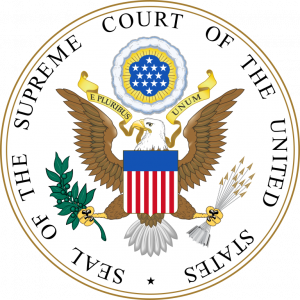 The Supreme Court will be deciding some very important regulatory law cases in the new few weeks as the term winds down.
The Supreme Court will be deciding some very important regulatory law cases in the new few weeks as the term winds down.
CERCLA Circled
Last week, the Court granted a petition to review a significant CERCLA case, Atlantic Richfield Company v. Christian, et al., decided by the Supreme Court of Montana on state law grounds. This case involves state litigation which could result in a cleanup whose scope is allegedly inconsistent with an ongoing and expensive federal CERCLA cleanup at the Anaconda Smelter site. CERCLA basically provides that no one may challenge an ongoing Superfund cleanup, yet this state common law proceeding seeking a cleanup of the plaintiff’s homes and properties arguably threatens the EPA-approved cleanup remedy. ARCO filed a petition for certiorari with the Supreme Court, which the Court has now granted despite the Solicitor General’s brief which argued that the Court should wait to see the results of the Montana trial. (It is unusual for the Court to reject the advice of the Solicitor General.)
No Gap to See Here – California Wage and Hours Laws Off the Table when Offshore
In a decision rendered on June 10, 2019, the Court holds, in a unanimous opinion, that California wage and hour laws do not apply to offshore operations conducted on the Outer Continental Shelf (OCS) pursuant to the Outer Continental Shelf Lands Act (OCSLA). The case is Parker Drilling Management v. Newton. Newton worked on drilling platforms located off the coast of California in staggered shifts; while he was paid at rates well above the California and federal minimum wage rates, he was not paid for his “standby time.” He filed a class action in California state court, alleging violations of California wage-and-hour laws and related state-law claims. The case was removed to federal court, where the presiding federal judge dismissed the claim on the basis of a Fifth Circuit OCSLA case that had been followed by many courts, Continental Oil Co. v. London Steam-Ship Owners’ Mut. Ins. Association, 417 F 2d 1030 (1969), which held that state law applies on the OCS only to the extent that it is necessary to fill a significant void or gap in federal law. The Ninth Circuit reversed, holding that state law is applicable under the OCSLA whenever it pertains to the matter at hand. In an opinion written by Justice Thomas, the court noted that “this is a close question of statutory interpretation,” but in the end the Court held that the argument that there was not a “gap” to fill was more persuasive. The decision reaffirms the primacy of federal law on the OCS, and could affect other disputes involving offshore operations.
 Gravel2Gavel Construction & Real Estate Law Blog
Gravel2Gavel Construction & Real Estate Law Blog


